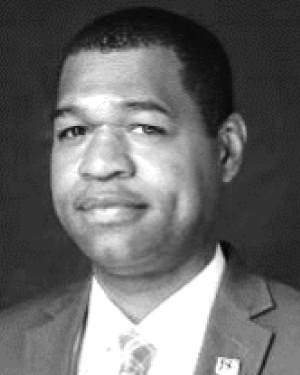The proposed methodology employed a fusion of Support Vector Machine (SVM) and multi-wavelet feature extraction techniques for the analysis of EEG-derived inner speech. T...
Abstract:
Speech involves the synchronization of the brain and the oral articulators. Inner speech, also known as imagined speech or covert speech, refers to thinking in the form o...Show MoreMetadata
Abstract:
Speech involves the synchronization of the brain and the oral articulators. Inner speech, also known as imagined speech or covert speech, refers to thinking in the form of sound without intentional movement of the lips, tongue, or hands. Decoding human thoughts is a powerful technique that can help individuals who have lost the ability to speak. This paper introduces a high-performance brain wave decoder based on inner speech, using a novel feature extraction method. The approach combined Support Vector Machine (SVM) and multi-wavelet feature extraction techniques to decode two EEG-based inner speech datasets (Data 1 and Data 2) into internally spoken words. The proposed approach achieved an overall classification accuracy of 68.20%, precision of 68.22%, recall of 68.20%, and F1-score of 68.21% for Data 1, and accuracy of 97.5%, precision of 97.73%, recall of 97.50%, and F1-score of 97.61% for Data 2. Additionally, the Area Under the Curve of the Receiver Operating Characteristic (AUC-ROC) demonstrated the validity of the proposed approach for classifying inner speech commands by achieving a macro-average of 78.76% and 99.32% for Data 1 and Data 2, respectively. The EEG-based inner speech classification method proposed in this research has the potential to improve communication for patients with speech disorders, mutism, cognitive development issues, executive function problems, and mental disorder.
The proposed methodology employed a fusion of Support Vector Machine (SVM) and multi-wavelet feature extraction techniques for the analysis of EEG-derived inner speech. T...
Published in: IEEE Access ( Volume: 12)

Department of Electrical & Computer Engineering and Computer Science, Jackson State University, Jackson, MS, USA
Mokhles M. Abdulghani (Senior Member, IEEE) received the B.Sc. degree in mechanical engineering from the University of Technology, Baghdad, the M.Sc. degree in mechatronics engineering from Philadelphia University, and the Ph.D. degree in computer engineering from Jackson State University. He is currently a Postdoctoral Research Fellow in AI-powered brain-computer interface with Jackson State University. He has over twent...Show More
Mokhles M. Abdulghani (Senior Member, IEEE) received the B.Sc. degree in mechanical engineering from the University of Technology, Baghdad, the M.Sc. degree in mechatronics engineering from Philadelphia University, and the Ph.D. degree in computer engineering from Jackson State University. He is currently a Postdoctoral Research Fellow in AI-powered brain-computer interface with Jackson State University. He has over twent...View more

Department of Electrical & Computer Engineering and Computer Science, Jackson State University, Jackson, MS, USA
Wilbur L. Walters received the B.S. degree in physics from Jackson State University, and the M.S. and Ph.D. degrees in materials engineering from the University of Alabama at Birmingham. He is currently a Tenured Associate Professor with the Department of Civil and Environmental Engineering and Industrial Systems and Technology, Jackson State University. He has published in refereed journals and conferences. His current r...Show More
Wilbur L. Walters received the B.S. degree in physics from Jackson State University, and the M.S. and Ph.D. degrees in materials engineering from the University of Alabama at Birmingham. He is currently a Tenured Associate Professor with the Department of Civil and Environmental Engineering and Industrial Systems and Technology, Jackson State University. He has published in refereed journals and conferences. His current r...View more

Department of Electrical & Computer Engineering and Computer Science, Jackson State University, Jackson, MS, USA
Khalid H. Abed (Senior Member, IEEE) received the B.S., M.S., and Ph.D. degrees in electrical engineering from Wright State University, in 1995, 1996, and 2000, respectively. He is currently a Tenured Professor with the Department of Electrical and Computer Engineering and Computer Science, Jackson State University (JSU). He has extensively published in refereed journals and conferences. He has many USPTO patent applicati...Show More
Khalid H. Abed (Senior Member, IEEE) received the B.S., M.S., and Ph.D. degrees in electrical engineering from Wright State University, in 1995, 1996, and 2000, respectively. He is currently a Tenured Professor with the Department of Electrical and Computer Engineering and Computer Science, Jackson State University (JSU). He has extensively published in refereed journals and conferences. He has many USPTO patent applicati...View more

Department of Electrical & Computer Engineering and Computer Science, Jackson State University, Jackson, MS, USA
Mokhles M. Abdulghani (Senior Member, IEEE) received the B.Sc. degree in mechanical engineering from the University of Technology, Baghdad, the M.Sc. degree in mechatronics engineering from Philadelphia University, and the Ph.D. degree in computer engineering from Jackson State University. He is currently a Postdoctoral Research Fellow in AI-powered brain-computer interface with Jackson State University. He has over twenty refereed publications, including IEEE conference papers, journal articles, and one book chapter. He also has a patent application with the USPTO. His research interests include artificial intelligence, human-machine interface, and affective computing design using physiological signals and machine learning. He is a certified peer reviewer at Elsevier and has been actively engaged in the review process for scientific papers across various renowned journals, including the IEEE Transactions on Instrumentation and Measurement (TIM) journal.
Mokhles M. Abdulghani (Senior Member, IEEE) received the B.Sc. degree in mechanical engineering from the University of Technology, Baghdad, the M.Sc. degree in mechatronics engineering from Philadelphia University, and the Ph.D. degree in computer engineering from Jackson State University. He is currently a Postdoctoral Research Fellow in AI-powered brain-computer interface with Jackson State University. He has over twenty refereed publications, including IEEE conference papers, journal articles, and one book chapter. He also has a patent application with the USPTO. His research interests include artificial intelligence, human-machine interface, and affective computing design using physiological signals and machine learning. He is a certified peer reviewer at Elsevier and has been actively engaged in the review process for scientific papers across various renowned journals, including the IEEE Transactions on Instrumentation and Measurement (TIM) journal.View more

Department of Electrical & Computer Engineering and Computer Science, Jackson State University, Jackson, MS, USA
Wilbur L. Walters received the B.S. degree in physics from Jackson State University, and the M.S. and Ph.D. degrees in materials engineering from the University of Alabama at Birmingham. He is currently a Tenured Associate Professor with the Department of Civil and Environmental Engineering and Industrial Systems and Technology, Jackson State University. He has published in refereed journals and conferences. His current research interests include artificial intelligence, data science, brain-computer interface, autonomous robots, machine learning, and deep learning. He is a technical reviewer for many IEEE journals and conferences.
Wilbur L. Walters received the B.S. degree in physics from Jackson State University, and the M.S. and Ph.D. degrees in materials engineering from the University of Alabama at Birmingham. He is currently a Tenured Associate Professor with the Department of Civil and Environmental Engineering and Industrial Systems and Technology, Jackson State University. He has published in refereed journals and conferences. His current research interests include artificial intelligence, data science, brain-computer interface, autonomous robots, machine learning, and deep learning. He is a technical reviewer for many IEEE journals and conferences.View more

Department of Electrical & Computer Engineering and Computer Science, Jackson State University, Jackson, MS, USA
Khalid H. Abed (Senior Member, IEEE) received the B.S., M.S., and Ph.D. degrees in electrical engineering from Wright State University, in 1995, 1996, and 2000, respectively. He is currently a Tenured Professor with the Department of Electrical and Computer Engineering and Computer Science, Jackson State University (JSU). He has extensively published in refereed journals and conferences. He has many USPTO patent applications. His current research interests include artificial intelligence (AI), AI safety, edge computing, brain-computer interface, autonomous intelligent systems, human-machine teaming, machine learning, deep learning, reinforcement learning, and multi-agent reinforcement learning. He is a technical reviewer for many IEEE journals and conferences.
Khalid H. Abed (Senior Member, IEEE) received the B.S., M.S., and Ph.D. degrees in electrical engineering from Wright State University, in 1995, 1996, and 2000, respectively. He is currently a Tenured Professor with the Department of Electrical and Computer Engineering and Computer Science, Jackson State University (JSU). He has extensively published in refereed journals and conferences. He has many USPTO patent applications. His current research interests include artificial intelligence (AI), AI safety, edge computing, brain-computer interface, autonomous intelligent systems, human-machine teaming, machine learning, deep learning, reinforcement learning, and multi-agent reinforcement learning. He is a technical reviewer for many IEEE journals and conferences.View more

